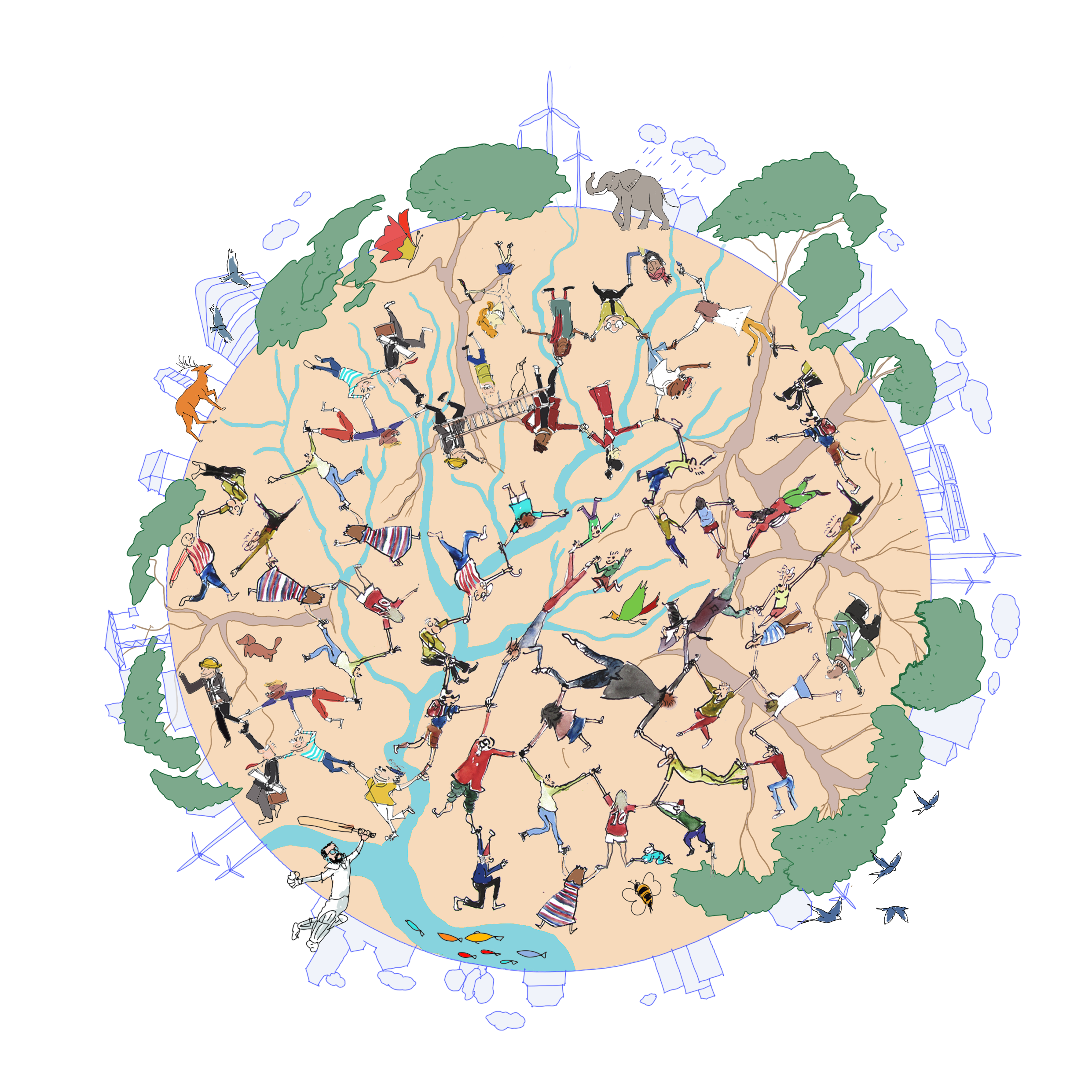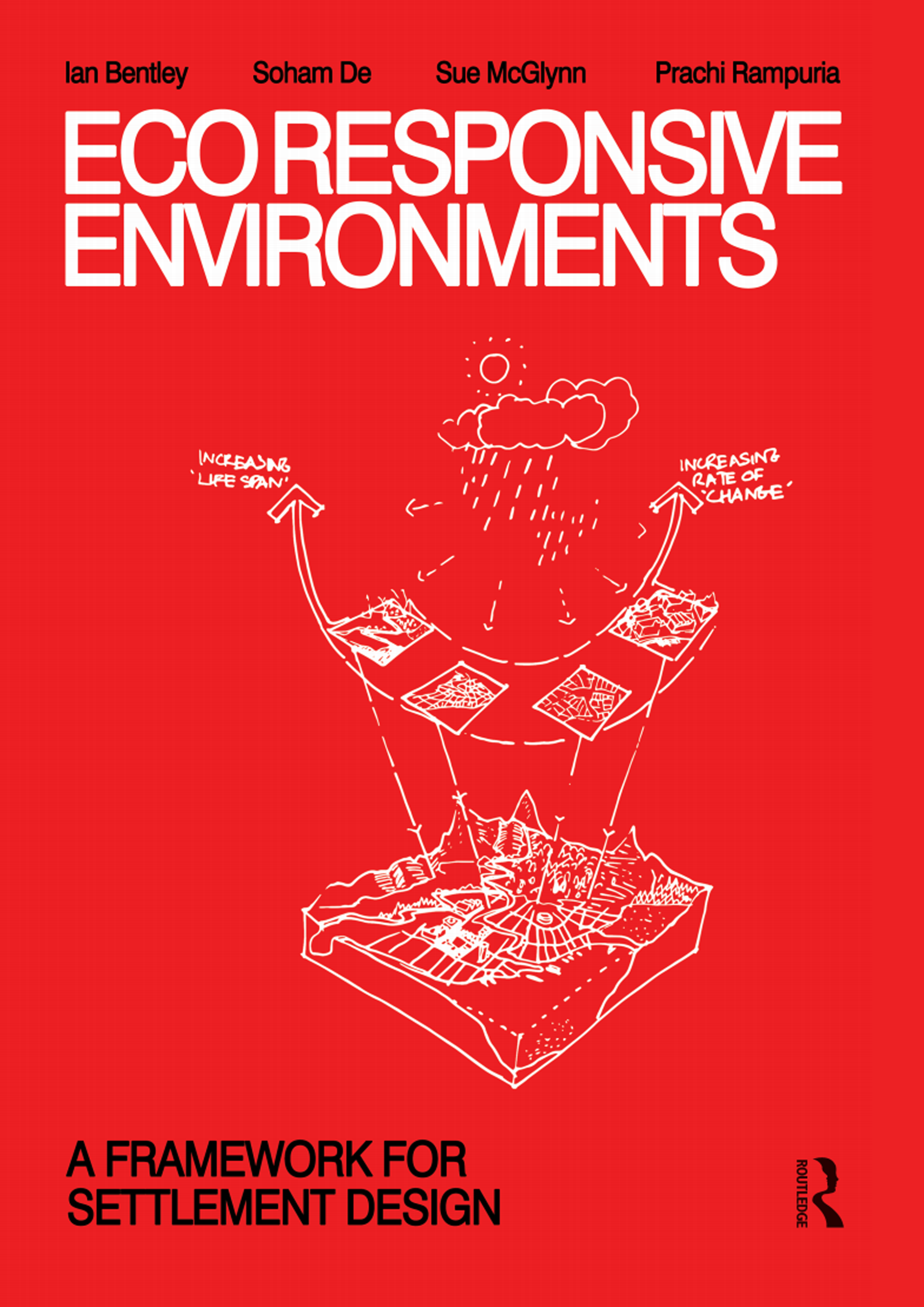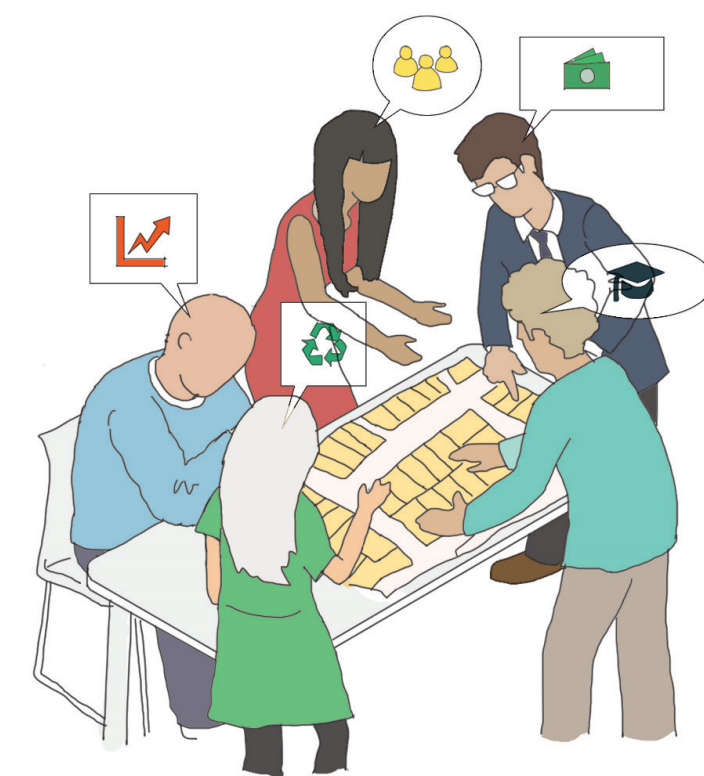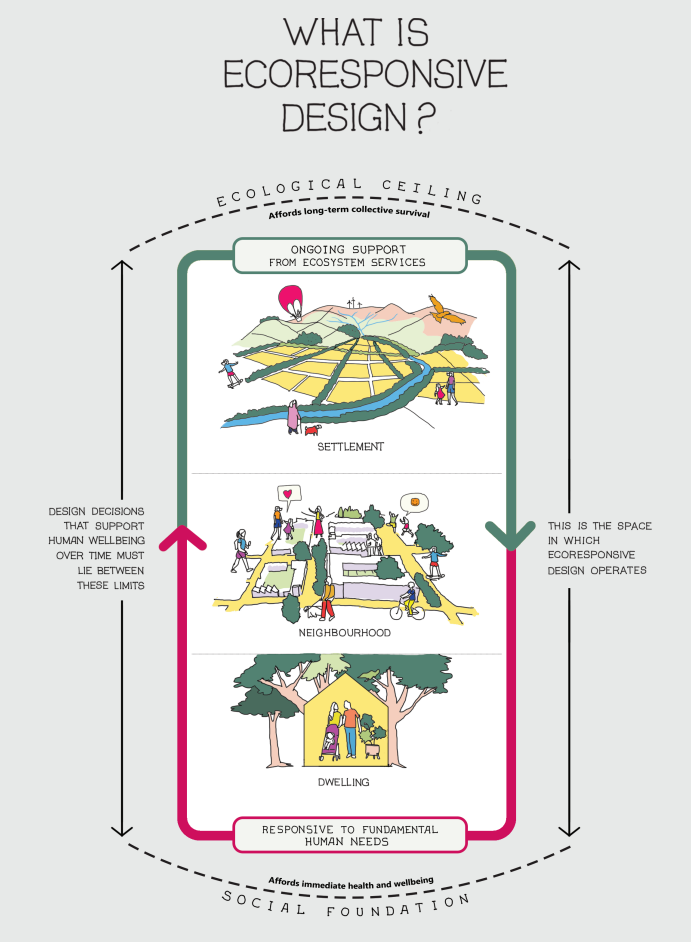EcoResponsive Design
A framework for designing sustainable, biodiverse and resilient masterplans.
Learn the knowledge and skills to put nature at the heart of your design approach
6-Week Online Course
Starts: 22 May 2025

Where and how we live has far-reaching implications for emissions, quality of life and biodiversity. Yet, so many new developments are fundamentally unsustainable, unhealthy and lacking character.
The EcoResponsive Design course teaches a robust and tested framework for designing successful places for people and nature. Combining systems thinking, design, ecology and social science approaches, this course provides a practical response to the climate, biodiversity and housing crises.
The course is based on the groundbreaking book EcoResponsive Environments, published by Routledge in 2024.

'A pragmatic framework of confident and credible strategies for planners, designers, developers and communities together with anyone with a desire to meet the growing demand for greater place impact driven by social and sustainability outcomes.'
- Mark Hallet, Non-Executive Director, Goram Homes & Trivallis

Through the course you will:
Develop a strategic design approach for nature-led masterplanning.
Understand natural and human systems and how designers can respond to these in holistic and integrated ways.
Gain systems thinking skills for sustainable and resilient placemaking.
Experience an interdisciplinary and collaborative approach to masterplanning.
Learn practical skills that you can use immediately in your work.

Who is the course for?
Anyone who is passionate about sustainability and wants to learn a practical approach to nature-led masterplanning, including:
• Architects
• Urban designers
• Landscape Architects
• Policy makers
• Planners
• Developers and Landowners
• Politicians and Community leaders
• Project managers

EcoResponsive Design integrates our current knowledge of designing for human needs with a deeper understanding of natural systems.
The aim of the framework is to address the overarching issues of the Anthropocene at the project scale by responding to human needs while enabling ongoing support for ecosystem services.
It encompasses all scales, ranging from the overall form of settlements and the landscapes in which they sit, to buildings and the detailed design of public spaces.
Watch the webinar below that explains EcoResponsive Design in depth:
Meet your Instructors

Prachi Rampuria
Co-founding director of EcoResponsive Environments and a Design Council Expert. With 15+ years of experience, Prachi leads multidisciplinary teams in award-winning urban design, masterplanning, and public realm regeneration. She teaches, sits on multiple Quality Review Panels, and co-authored EcoResponsive Environments (Routledge, 2024).

Soham De
Co-founding director of EcoResponsive Environments and teaches at Oxford Brookes University. Soham's expertise brings creative design leadership and vision, a deeply collaborative design approach and an understanding to the art of place-making together with strong visual representation skills. He has juried the Pineapple Awards and co-authored EcoResponsive Environments (Routledge, 2024).

Ross O'Ceallaigh
Ross is an urban designer and sustainability educator. He’s the host of the Green Urbanist podcast and has been helping built environment professionals to upskill in sustainability for over 5 years. Recently he organised and hosted the 'Planning for a Sustainable Future' conference at University of Kent.
Learning Experience
6 Weekly Live Sessions
Online via Zoom.
3 hours per session.
Recordings available afterwards.
Learn from the Experts
Learn the art and science of EcoResponsive Design with presentations from Prachi and Soham followed by Q&A and discussion.
Learn by Doing
Interactive group workshops.
Apply the learnings from the presentations to a real masterplan site. Each week builds on the last and culminates in a final concept masterplan in week 6.
Curriculum
Weekly sessions take place every Thursday at 13:00-16:00 UK time
Week 1
Introduction to EcoResponsive Design
22 May 2025
Covers the foundational concepts that the rest of the course will build on. Introduction to key principles for sustainable, people and nature-friendly places. We'll also introduce you to the group workshop
Week 2
Natural Infrastructure
29 May 2025
Design natural infrastructure by integrating water systems and a highly connected green network. Equitable access to green spaces, sustainable drainage, promoting active lifestyles, strengthening community connections, and ensuring clean water and fresh air for a resilient, multifunctional, and productive landscape.
Week 3
Public Space Network
5 June 2025
Design a walkable, climate-responsive street network that integrates with natural infrastructure. Key topics include connecting strategic routes, optimising alignments for drainage and mobility, ensuring long term connectivity and integrated with green infrastructure.
Week 4
Land Use and Density
12 June 2025
Strategically position land uses for a balanced, connected built environment. Key topics include assessing community needs, integrating public facilities and housing, enhancing street vitality, and aligning development with green spaces and transport routes.
Week 5
Legible Townscape
19 June 2025
Enhance place character by aligning streets with key views, creating landmarks, defining street hierarchy, and ensuring active, pedestrian- friendly frontages. You will also explore strategic building groupings to improve accessibility, conviviality, and cohesion, shaping a vibrant and locally distinctive place.
Week 6
Course Conclusion
26 June 2025
Integrate key principles to create a cohesive, resilient development framework, refining street networks, natural infrastructure, and land use. The module culminates in a final group presentation and discussion, where you’ll showcase your collaborative design, demonstrating a holistic, people and nature-based vision of an EcoResponsive Settlement.
FAQs
The course is delivered entirely through live video conferencing via Zoom. There is no pre-recorded content but you will get access to the event recordings afterwards.
Ideally, yes! The course is designed to be highly interactive and to give you opportunities to learn through doing and connect with other students. If you miss any live sessions, you can catch up by watching the recording afterwards but we advise you to attend as many live sessions as possible.
The course is interdisciplinary in nature so we expect participants to come from a variety of backgrounds. You don’t need to have any specific knowledge beforehand but some experience of working in the built environment and development sectors would be advantageous.
The course is not accredited by any external organisation. You will receive a certificate of completion for your records.
Enrolment is capped at 36 participants. This ensures manageable group sizes for group activities and allows the tutors to give enough attention to everyone.
Pricing
Need to pay by invoice?
Request an invoice using the contact form below.
Get in touch
Let us know if you have any questions or need to be invoiced for the course.
We'll get back to you soon.
Mailing List
Join the mailing list to get notified about future courses.
Course Brochure
The course brochure has all the essential information.
Download it to share with colleagues

